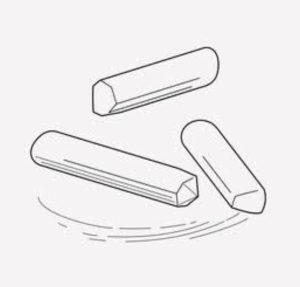3 Beginner
Chapter 1: My Future
Learning Objectives
Type your learning objectives here.
- Develop an understanding the concept of future aspirations;
- Understand the basic workplace concepts and job roles; and
- Create a short reflective letter with an object that represents their future.
Vocabulary
-
Future – encompasses the possibilities and opportunities that lie ahead in your life, shaped by your choices, aspirations, and circumstances.
- Future Aspirations – refer to the goals, dreams, and desires individuals have for their lives are moving forward.
- Job Role – refers to the specific responsibilities, duties, and functions associated with a particular position within an organization.
- Goals – measurable objectives that individuals set to achieve desired outcomes in their personal or professional lives.
- Skills – the abilities and competencies that enable individuals to perform specific tasks effectively.
Essential Knowledge
In a module focused on future aspirations, one important aspect of setting goals for the future involves recognizing the value of personal and professional development. Learners must learn to identify their values, skills, strengths, and areas of interest which will help them articulate clear, achievable goals for their future. This involves encouraging students to explore other avenues, such as education, career paths, and personal growth opportunities. Additionally, cultivating a mindset of adaptability and resilience will empower students to embrace change, navigate journeys, and remain focused on their aspirations by creating actionable plans that align with their dreams, ultimately fostering a sense of guiding them toward a fulfilling direction in their lives.
Activities
Carefully read and understand the exercises presented and follow the directions for each activity. The activities will require you to work with a partner or in small groups. Collaborate with your peers, share ideas, and practice speaking together.
Conversational
Peer Sharing about Future Aspirations
Instruction: Read and Follow as directed.
- Form a circle and each of you will have a minimum of 5 minutes chance to share your thoughts on your future.
- The first learner to share their future aspirations will hold a compass and pass it to the next learner that indicates who will take turns to speak. In answering, Please be guided by the questions below.
- What do you want to do in the future?
- What is one goal you have?
- What skills would you like to learn?
3. After everyone has shared, there will be a group discussion as to what you have learned from each other. Everyone can give ask follow-up questions.
Follow-up questions
- Why do you want that?
- How will you achieve that goal?
Technical
Instruction: Provided with some flashcards with job titles and descriptions, in groups you will be selecting one job role, then discuss as a group to identify the following:
- What is the job?
- Main tasks/responsibilities of the job
- Important skills required or needed in that job
- An illustration related to the job
You will be given 8-10 minutes to finish the tasks and will present the output to everyone, explaining the job role and its importance. After the presentation, you will be asked about what you’ve learned about the different jobs and the skills needed for each.
Creative
Draw and Reflect
Instruction: Draw a picture of a thing that best represents what you wish to be in the future by answering the guide question provided. See the examples below.
- Why and how does it symbolize or represent your future?


Let’s Check!
Key Takeaways
Understanding an individual’s job duties and future responsibilities is important to have an objective to set. The primary reason for learning all of this is that it helps learners get ready for evolving job environments by making sure they acquire relevant knowledge and skills that meet the needs of the industry. Second, having an understanding of future structures helps better decision-making, allowing people to set reasonable objectives and aspirations for a variety of purposes, including getting a job. Lastly, satisfaction and efficiency improve when job responsibilities are understood since they enhance accountability and clarity in job duties. Hence, this lesson enables the learners to practice their basic communication skills and learn what they should be looking forward to in the future.
